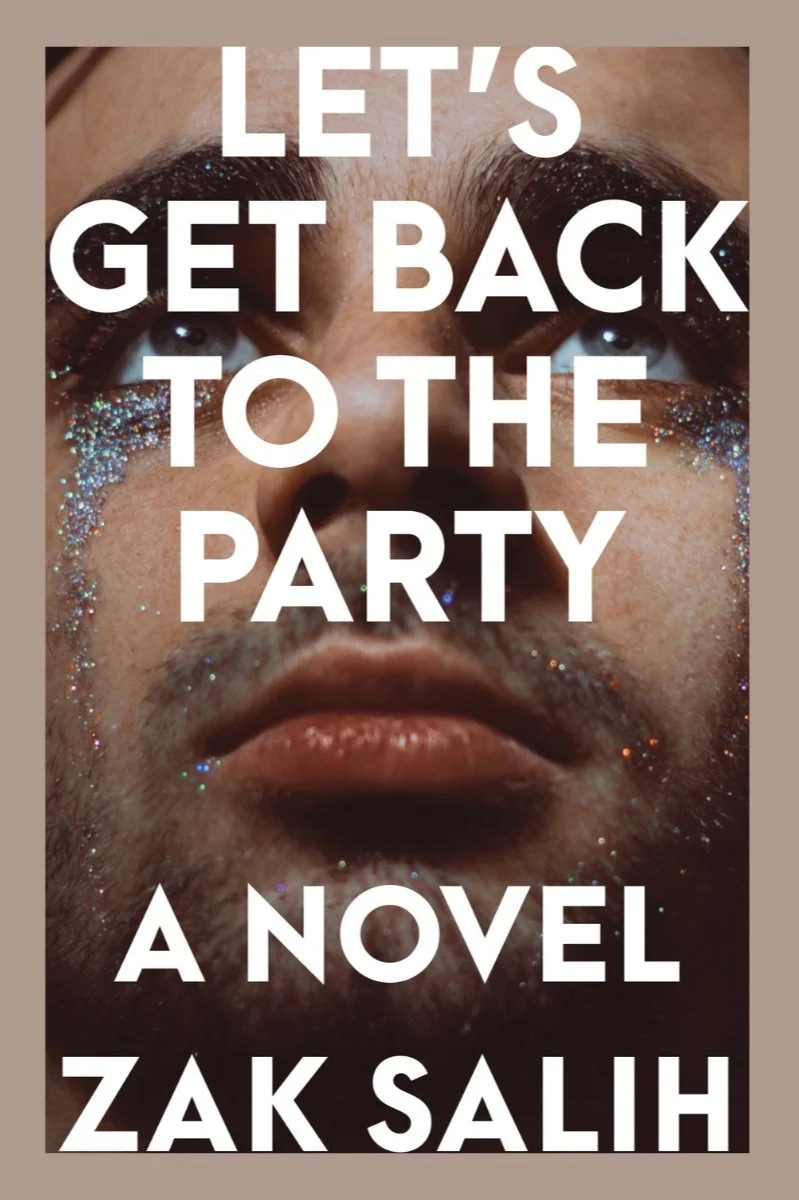Let’s Get Back to the Party – Zak Salih
Zak Salih’s debut, “Let’s Get Back to the Party,” is a thoughtful, and at times uncomfortable, exploration of what it means to be a gay man caught between the struggles of the past and the freedoms of the present.
Set in the immediate aftermath of the Supreme Court's landmark marriage equality ruling, the book examines themes of identity and community through the lens of two estranged childhood friends, Sebastian and Oscar, whose lives collide in unexpected ways.
Sebastian, a high school art history teacher reeling from a breakup, longs for stability and a conventional life. Meanwhile, Oscar rejects the assimilationist trappings of same-sex marriage, yearning instead for the hedonistic spirit of the gay liberation movement.
Their opposing worldviews create tension as they navigate separate yet occasionally intersecting paths – Sebastian through an ill-advised fascination with a student, and Oscar via a non-sexual friendship with Sean, an older writer from the initial AIDS crisis era.
The novel is largely plotless, driven instead by character dynamics and emotional undercurrents. This works well when focused on the fraught acquaintanceship between Oscar and Sebastian or the nuanced interplay between Oscar and Sean.
The latter relationship is particularly compelling, providing a rare depiction of a multi-generational queer friendship where the elder figure retains their sexual agency. Salih handles this with a refreshing blend of realism and grace, avoiding the traps of sentimentality or caricature.
However, some plot points strain credulity, most notably Sebastian’s obsession with his student, Alex. While Salih skirts outright impropriety, this thread feels like an unnecessary risk that detracts from Sebastian’s otherwise relatable journey of loneliness and self-discovery.
Additionally, the last third of the book meanders after resolving key plot points. This shift leaves the narrative feeling slightly unfocused, though it arguably mirrors the uncertain realities of life post-crisis.
Throughout, I found Salih’s prose is sharp and evocative, often balancing raw honesty with a literary finesse. While there are moments of explicitness — descriptions of sex and bodily fluids that are blush inducing — they serve the novel’s broader purpose of examining unvarnished queer experiences. These choices underscore the lustful abandon of Oscar’s journey, juxtaposed against Sebastian’s yearning for conventional comfort.
Not every reader will find the characters likable — both Sebastian and Oscar can be frustratingly self-absorbed — but their flaws make them human and reflective of the novel’s central themes of growth and self-reckoning. Salih’s exploration of how people evolve over time, and how relationships can fade or resurface, is authentic.
From the Obergefell ruling to the Pulse nightclub massacre, “Party” captures the emotional and political climate of a pivotal year for the LGBTQ+ community. The novel questions the expectations placed on modern gay men, contrasts different generational perspectives and resists a tidy resolution, embodying the complexity and contradictions of queer existence in a post-modern world.
The hybrid read/listen format worked well, though narrators Michael Crouch and Will Damron occasionally felt mismatched to the characters as I envisioned them. That said, their performances were solid, making this an easy way to tackle the novel during a busy season.
This is a strong debut that successfully captures the complexities of an “in-between” generation of gay men. While its focus occasionally wavers, Salih’s talent as a writer was evident, and I’ll certainly be watching for what he writes next.
Rating (story): 4/5 stars
Rating (narration): 3/5 stars
Format: Hybrid read/listen (personal library; library loan)
Dates read: December 2 – December 15, 2024
Multi-tasking: Good to go. This is an easy read in any format, but with two good narrators, the audiobook was my preferred way to tackle the more repetitive and outlandish plot points.





